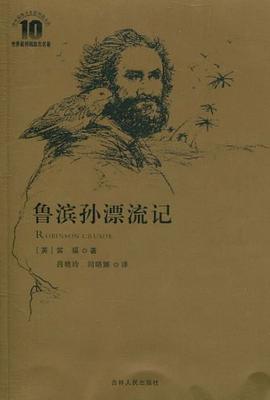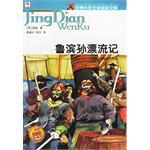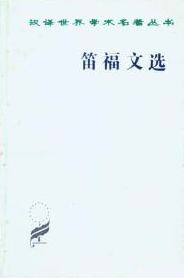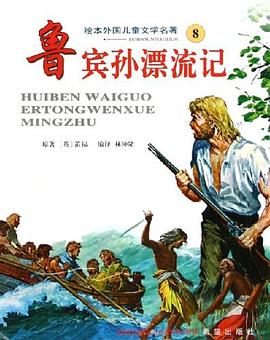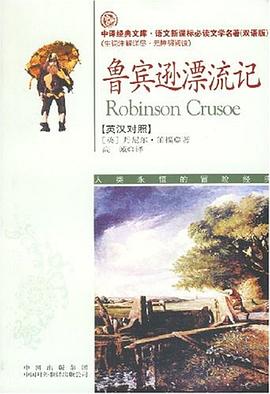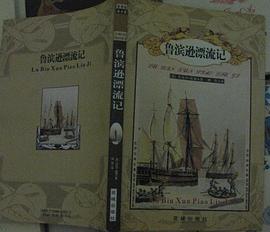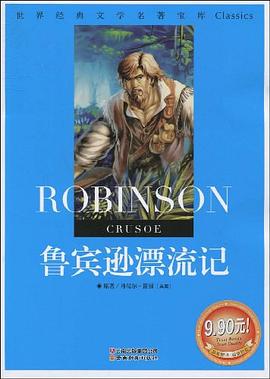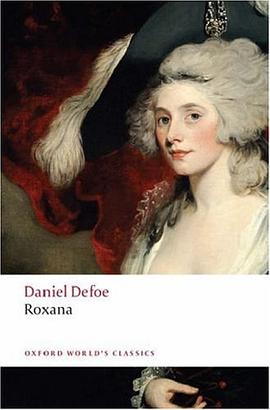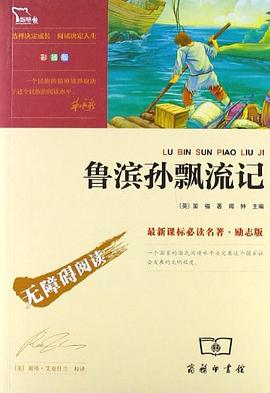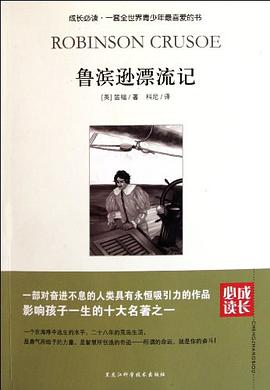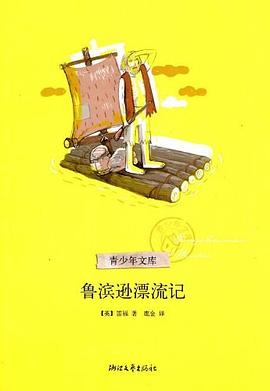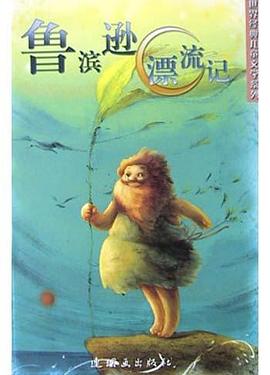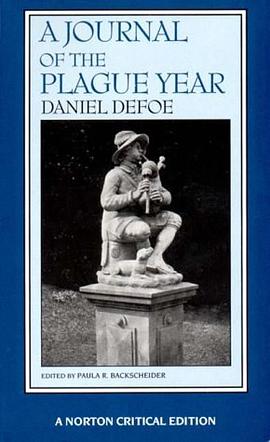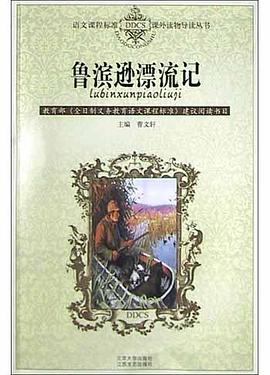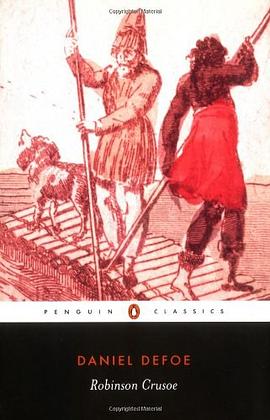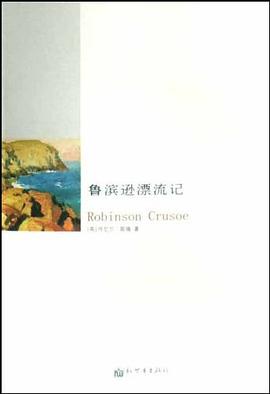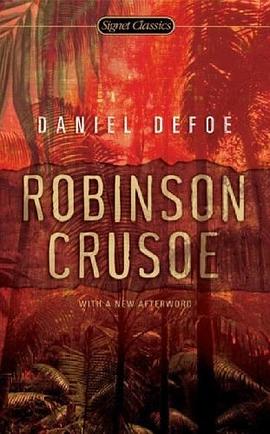

具体描述
Daniel Defoe’s classic tale of a solitary castaway’s survival and triumph, widely considered to be the first English novel.
“I, poor miserable Robinson Crusoe, being shipwrecked, came on shore on this dismal unfortunate island, all the rest of the ship’s company being drowned. In despair of any relief, I saw nothing but death before me…”
Thus Crusoe begins his journal in Daniel Defoe’s classic novel: the vividly realistic account of a solitary castaway’s triumph over nature—and over the fears, self-doubt and loneliness that are parts of human nature.
For almost three centuries, Robinson Crusoe has remained one of the best known and most read tales in modern literature, a popularity owing as much to the enduring freshness and immediacy of its style as to its widely acknowledged status as the very first English novel.
作者简介
Daniel Defoe was a Londoner, born c. 1660 at St. Giles, Cripplegate, the son of James Foe, a tallow-chandler and member of the Butchers' Company. Daniel began to use the name 'De Foe' c. 1695. He was educated for the Presbyterian ministry at Morton's Dissenting Academy at Newington Green, but decided he had no vocation and instead went into the wholesale hosiery business, acquiring premises in Cornhill. In 1685 he participated in Monmouth's unsuccessful rebellion. His business activities were extended into the wine trade and marine insurance, but in 1692 he was declared bankrupt. The consequences of this debacle pursued him for the rest of his life, though he profited from the experience by becoming an expert in bankruptcy law, which he had some influence in reforming.
Meanwhile, Defoe was becoming a prolific and versatile writer, producing pamphlets and books on a wide variety of topics, including politics, crime, religion, economics, marriage, topography and superstition. His first extant political tract (against James II) was published in 1688. Becoming a staunch supporter of King William, he published early in January 1601 a verse satire, The True-Born Englishman, championing William and making merciless fun of English chauvinism, and the poem was an instant and runaway success. Two years later he brought out The Shortest Way with the Dissenters, a pamphlet pretending to be by a High Churchan calling for a root-and-branch extirpation of Dissent. It caused the enraged Government to have Defoe committed to Newgate and tried at the Old Bailey, where he was sentenced to stand three times in the pillory. for the following ten years he acted as a personal agent for the Secretary of State, Robert Harley, with whose support he launched an influential periodical, the Review.
Defoe turned to fiction relatively late in life and in 1719 published his great imaginative work, Robinson Crusoe. This was followed in 1722 by Moll Flanders and A Journal of the Plague Year, and in 1724 by his last important novel, Roxana. Other major works include a History of the Union (1709); The Family Instructor (1715); A Tour Through the Whole Island of Great Britain, a guide-book in three volumes (1724-6); The Political History of the Devil (1726); A Plan of the English Commerce (1728); and The Complete English Gentleman (not published until 1890). He died on April 24, 1731.
目录信息
读后感
“Robinson Crusoe”, written by Daniel Defoe in 1719, powerfully arouses people’s resolution deep inside and incredible courage and will to face hardships. Like the motto engraved on the U.S. currency—in God we trust, we are thus blessed with might to s...
评分值得一看的书,此书情节单纯,叙述逼真,自然真切。小说的情节是通过人物的自白串联起来的,这样更能使我们读者随着故事的发展而被带入到具体的氛围中,并且能够从头到尾伴随着主人公的心理节奏体验荒岛生涯,感觉很奇妙!在作品中,你会真切地体会到人物内心细微的感受,有种...
评分 评分《鲁滨逊漂流记》的故事简单、朴实而又非常打动人。一个水手鲁滨逊因船沉了而流落到了无人的荒岛,度过了28年。在进退无路的情况下,他开始想办法自救----做木筏、造房子、种粮食、养牲畜,竭力投入到与大自然的抗争中去。他靠自己的双手,凭着自己的智慧,花了几十年的...
评分给儿子讲这个故事的时候,他问:为什么不把我的名字取成鲁滨逊呢?对了,在另一个动物故事里,有一只流浪的兔子也叫鲁滨逊呢。可见,在渴望漂泊的人心里,鲁滨逊就是远方就是向往。 当然这样理解是误读了这个故事。来自约克城的鲁滨逊。克鲁索被日不落帝国的扩张势力影响,自...
用户评价
从文学技法的角度来看,这本书的叙事视角非常具有欺骗性。它以第一人称日记体的形式展开,本应带来最直接、最主观的体验,但实际上,主人公的叙述中充满了自我辩护和对过往行为的合理化。读者必须带着一种审视的眼光去阅读,去分辨哪些是事实,哪些是他为了维持自我形象而进行的“内心编辑”。这种不完全可靠的叙述者(Unreliable Narrator)手法,极大地增强了作品的现代感和复杂性。尤其是当他开始讲述自己如何改造荒岛、如何建立起一套属于自己的“微型帝国”时,那种近乎独裁者的姿态,让人不寒而栗。这不再是简单的生存,而是权力欲望在极端环境下的投射。这种对人性阴暗面的不加掩饰的呈现,使得这个故事即便放在今天,也依然能引发强烈的共鸣和不安感,它没有让主角成为一个完美的英雄,而是把他塑造成了一个真实而有缺陷的“现代人”的缩影。
评分我通常不太喜欢那种过于强调道德说教的文本,但这部作品的魅力恰恰在于它的“不经意说教”。它没有高喊口号,而是通过一系列无可辩驳的现实困境,自然而然地展示了人类精神的某些永恒主题。例如,主角对“财产”和“拥有”的执念,即使在一座荒岛上,这种心理阴影依然存在。他小心翼翼地保全从沉船上打捞上来的每一件物品,这不仅仅是物质上的需要,更是一种维护“旧世界秩序”的心理防御机制。当他发现自己可以完全脱离这些束缚时,那种释放感是巨大的,但随之而来的,是更深层次的空虚。这本书非常巧妙地揭示了,我们所珍视的文明,有多少是外部强加的,又有多少是我们内心真正需要的。这种对“回归自然”与“维护文明”之间界限的探讨,使得整部作品的深度远超一般的冒险故事范畴,更像是一场关于人性的社会学实验记录。
评分这本书的叙事节奏,初看之下有些缓慢,甚至有些冗长,特别是开篇部分大量的航海细节和商业纠纷的描述,对于追求快节奏阅读的现代读者来说,可能是一个不小的挑战。然而,正是这种看似“啰嗦”的铺陈,为后来的戏剧性转折积蓄了足够的情感张力。作者对环境的白描功力极为老道,无论是暴风雨的狂怒,还是热带雨林的闷热潮湿,都描绘得栩栩如生,仿佛能透过纸面感受到那种压迫感。但最精彩的还是人物内心的挣扎。主角从一个略显鲁莽的年轻人,逐渐蜕变为一个既精明又孤独的“岛主”。他与“星期五”的相遇,更是全书的高光时刻。这段关系的处理非常微妙,它超越了单纯的主人和仆人,更像是一种相互依存的、充满试探与尊重的“文明初创”。这种复杂的情感纠葛,让我不禁思考,在极端环境下,人与人之间建立联系的本质究竟是什么?是共同的语言,还是共同的生存需求?文字间的哲思,在不经意间就完成了对读者的叩问。
评分阅读体验中,最让我感到震撼的是对“时间”的感知被彻底重塑的过程。在文明社会里,我们的生活被精确地切割成分钟和小时,被各种约会和截止日期所奴役。但在孤岛上,时间变成了一种流动的、可塑的实体。太阳的升落、潮汐的规律,成了唯一的计时单位。这种感觉的转变是如此彻底,以至于当主人公最终被“解救”重返社会时,他反而对那种被“钟表”控制的生活感到了一种本能的抗拒和陌生。作者对这种“时间错位感”的捕捉极其细腻,它让读者在跟随主角冒险的同时,也进行了一次关于自己生命节奏的深刻反思。我们真的“拥有”时间吗?还是我们只是被时间“拥有”着?这本书的价值,远不止于讲述一个人的漂流故事,它更像是一面镜子,映照出我们现代生活方式背后,那些被我们遗忘或牺牲掉的更本质的生存哲学。读完后,我很久都无法摆脱那种对“自由时间”的渴望。
评分这本书,说实话,我一开始抱着试试看的心态翻开的,毕竟这种经典的文学作品总感觉有点“老生常谈”的味道。但没成想,一旦沉浸进去,那种强烈的代入感简直让人欲罢不能。它不像那些故作高深的文学作品,文字是那么的质朴,却又蕴含着无穷的力量。我仿佛能闻到海水的咸湿气息,感受到烈日炙烤的疼痛,还有那种与世隔绝的孤寂。最让我印象深刻的是主人公在逆境中展现出的惊人韧性和近乎偏执的求生欲。他不是一个超人,他会恐惧,会绝望,但他总能找到某种力量把自己从泥潭里拔出来。那段关于他如何学习建造住所、驯养动物、甚至尝试耕种的描述,简直是一部活生生的荒野生存教科书。其中关于时间观念的丧失与重塑,也让我深思。当社会的所有规则和参照物都消失后,我们依靠什么来定义“一天”或“一年”?这种对人类基本生存逻辑的探讨,远比单纯的探险故事要深刻得多。它让我意识到,真正的文明,或许并不在于我们拥有多少物质财富,而在于我们面对彻底的虚无时,能否重建起内心的秩序。
评分Life is an adventure
评分小朋友确实爱看啊
评分emmmm
评分emmmm
评分再读一遍,Crusoe对自己个人力量的态度在每一部分都很撕裂很矛盾,这次读的时候感受更深
相关图书
本站所有内容均为互联网搜索引擎提供的公开搜索信息,本站不存储任何数据与内容,任何内容与数据均与本站无关,如有需要请联系相关搜索引擎包括但不限于百度,google,bing,sogou 等
© 2026 book.quotespace.org All Rights Reserved. 小美书屋 版权所有

